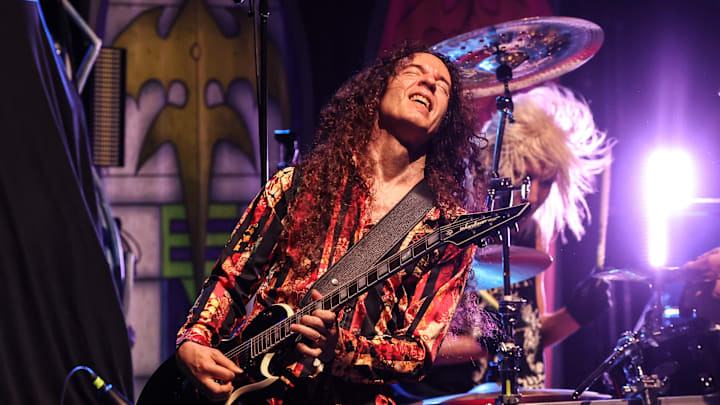In his memoir, Dreaming Japanese, Marty Friedman, the former lead guitarist of Megadeth, reveals that in 2015, he declined an opportunity to rejoin the band due to an unsatisfactory "lowball" financial offer. Friedman, who played a pivotal role in Megadeth's success during the 1990s, was approached to reunite with the band's classic lineup, including Dave Mustaine, David Ellefson, and Nick Menza.
However, the proposed compensation was equivalent to what he had earned upon initially joining Megadeth in 1990 (the band's Rust In Peace era), which was significantly less than his earnings as a prominent figure in Japan's entertainment industry. Friedman expressed his frustration, stating, "I was stunned and angry and told them I couldn’t even consider it."
He countered with a minimum acceptable offer, still below his standard rate in Japan, but the band deemed his request excessive. Friedman noted that a reunion tour, potentially opening for Iron Maiden, could have been highly lucrative for Megadeth and might have revitalized his career in the United States. Despite his willingness to compromise financially for the opportunity, the band's management did not meet his terms, leading to the reunion's collapse.
"Let’s just say he [Megadeth’s then-manager] wasn't even in the ballpark," wrote Friedman. "Hell, he wasn’t even in the parking lot for the ballpark."
More about Marty Friedman and his career with (and without) Megadeth
Marty Friedman, born on December 8, 1962, in Washington, D.C., is renowned for his contributions to the heavy metal genre, with Megadeth becoming one of the leading metal bands beyond the 1980s. Before joining Megadeth, he gained recognition through his work with the band Cacophony, alongside guitarist Jason Becker. Friedman joined Megadeth in either 1989 or 1990, contributing to some of the band's most acclaimed albums, including Rust in Peace and Countdown to Extinction.
After departing from Megadeth in 2000, he relocated to Tokyo in 2003, where he became a prominent television personality and musician, appearing on over 700 Japanese television programs and integrating into the Japanese music scene.
He explained: "I wanted to concentrate on [a career playing guitar in J-pop music], but they said, 'Just try this TV thing. Your Japanese is very good, and you have a very interesting viewpoint. Just give it a try.' And the first thing out of the box was a really big hit. It was a show called Hebimeta-san, which turned into Rock Fujiyama — it lasted for six seasons. For a new show, it's unheard of. So, other offers came up, and my management over here started filling things up, and the next thing you know, more people know me from television than music. And it's still the case."
Friedman's decision to decline the reunion underscores the complexities artists face when balancing financial considerations with creative opportunities. His successful career in Japan, both as a musician and media figure, afforded him the leverage to reject offers that did not meet his expectations (and left him "puzzled and sad"), even from a band as influential as Megadeth.
Dreaming Japanese provides an in-depth look into Friedman's life and career, detailing his journey from a guitarist in a thrash metal band to a multimedia entertainer in Japan. The memoir offers insights into his personal and professional experiences, shedding light on the decisions that have shaped his path.
Friedman's story illustrates the challenges musicians encounter in the industry, particularly when navigating international careers and the varying valuations of their work across different markets...and how they tie into the personal convictions and surprising opportunities that drive artistic endeavors.
